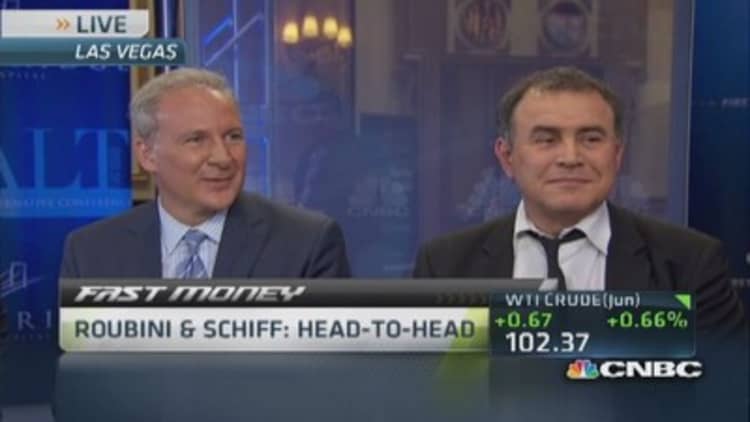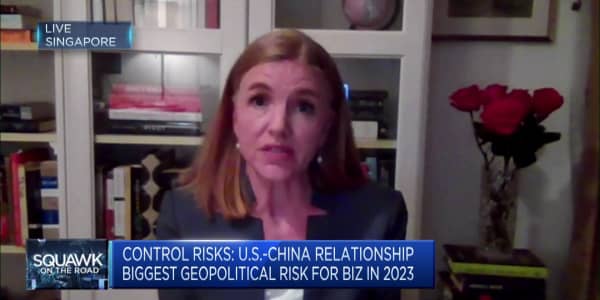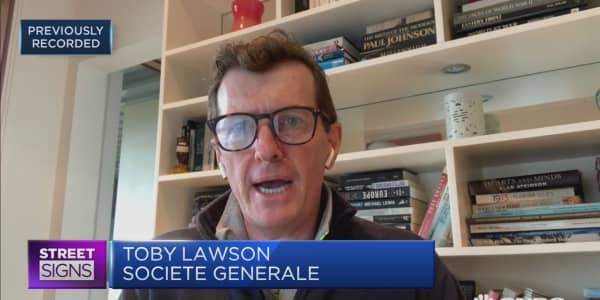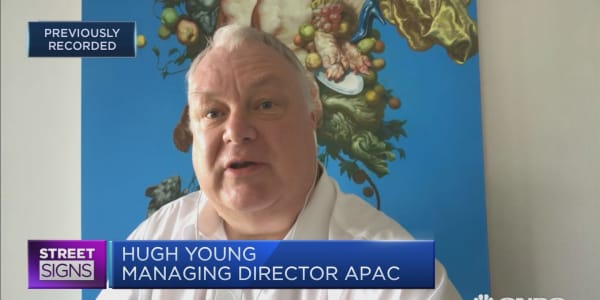Economist Nouriel Roubini, renowned for his foretelling of the housing bust and financial crisis, has revealed the key flashpoints that are keeping him up at night, which he believes could hit "rationally complacent" financial markets.
In an opinion piece on the Project Syndicate website, published late Tuesday, he said that an "obvious paradox" had occurred with oil prices ticking lower and equity traders remaining bullish despite a series of geopolitical risks that have flared up in 2014.
"A century ago, financial markets priced in a very low probability that a major conflict would occur, blissfully ignoring the risks that led to the first world war until late in the summer of 1914," he said.
Read MoreNouriel Roubini and Peter Schiff duke it out—again
"Back then, markets were poor at correctly pricing low-probability, high-impact tail risks. They still are."

He details three different scenarios that he believes could quickly change the current benign financial markets. The first is what he calls a "plausible development" whereby a terrorist attack occurs in Europe or the U.S.
Read More'Dr. Doom' Roubini gets bullish on global economy
"A surprise terrorist attack could unnerve global markets," he said. "Markets tend to disregard the risks of events whose probability is hard to assess but that have a major impact on confidence when they do occur."
The conflicts in Ukraine or Syria could also escalate, according to Roubini, with the latter having the ability to destabilize the neighboring countries of Jordan, Lebanon and Turkey, he added. Lastly, he also believes that geopolitical and political tensions are more likely to trigger global contagion when they happen at the same time.
Read MoreHere a bubble, there a bubble: Ol' Marc Faber
Another "storm" could for example occur in emerging markets, triggered by the fears over a Chinese slowdown that could then spill over into advanced economies.
Click here to read the full article on the Project Syndicate website.




